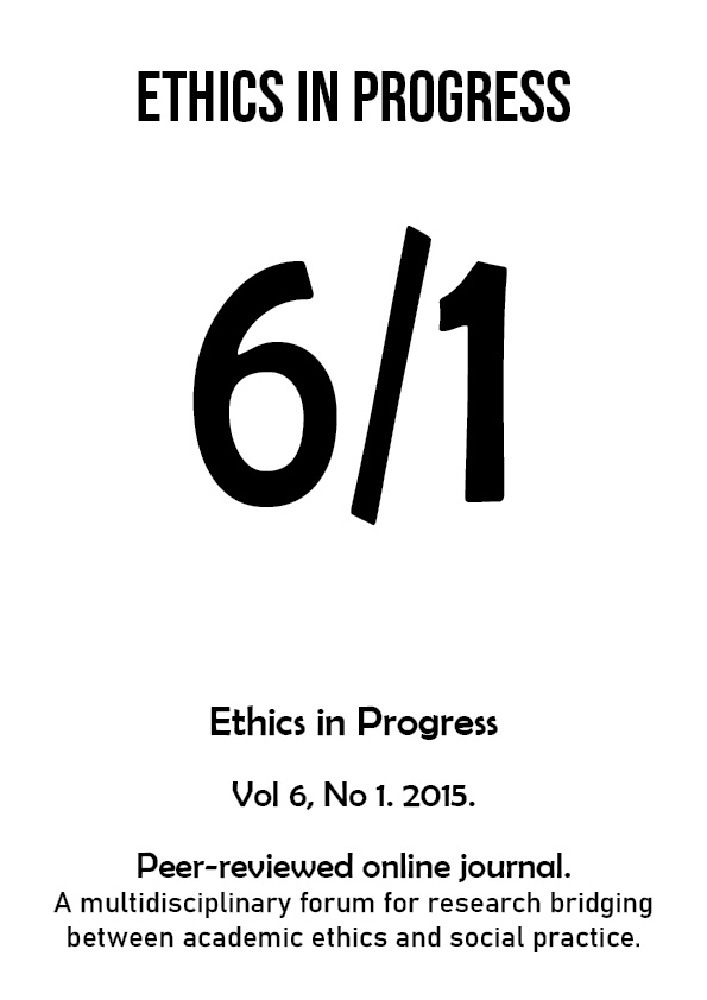Abstract
Bioconservative view holds that we should prevent dissemination of biomedical inteventions enhancing human capacities. One of arguments against this view shows that it is based on status quo bias which gives unjustified preference for actual state of affairs. According to this argument reasons against human enhancement are not conclusive. The aim of this article is to show the possibility of the interpretation of the bioconservative view, under which it is possible avoiding the status quo bias objection.
References
Agar, N. 2010. Humanity's End: Why We Should Reject Radical Enhancement. MIT Press, Cambridge.
Agar, N. 2014. Truly Human Enhancement: A Philosophical Defense of Limits. MIT Press, Cambridge.
Bostrom N. & Ord T. 2006. “The Reversal Test: Eliminating Status Quo Bias in Applied Ethics.” Ethics 116: 656–679.
Buchanan, A. E. 2008. “Enhancement and the Ethics of Development.” Kennedy Institute of Ethics Journal 18: 1–34.
Buchanan, A. E. 2011a. Better Than Human: The Promise and Perils of Enhancing Ourselves. New York: Oxford University Press.
Buchanan, A. E. 2011b. Beyond Humanity? The Ethics of Biomedical Enhancement. Oxford: Oxford University Press.
DeGrazia, D. 2007. “Human-Animal Chimeras: Human Dignity, Moral Status, and Species Prejudice.” Metaphilosophy 38: 309-329.
Douglas, T. 2015. “The Harms of Enhancement and the Concluive Reasons View.” Cambridge Quarterly of Healthcare Ethics 24: 23-36.
Fukuyama, F. 2002. Our Posthuman Future: Consequences of the Biotechnology Revolution. New York: Profile Books.
Habermas, J. 2003. Przyszłość natury ludzkiej. Czy zmierzamy do eugeniki liberalnej? Tłum. M. Łukasiewicz. Warszawa: Wydawnictwo Naukowe SCHOLAR.
Hainz, T. 2012. „Value Lexicality and Human Enhancement.” Technoethics 3: 54-65.
Harris, J. 2010. „Moral Enhancement and Freedom.” Bioethics 25: 102-111.
Häyry, M. 2010. Rationality and the Genetic Challenge: Making People Better?. Cambridge University Press: Cambridge.
Jonas, H. 1996. Zasada odpowiedzialności. Tłum. M. Klimowicz. Platan: Kraków.
Kahneman, D. 2011. Thinking Fast and Slow. New York: MacMillan.
Kahneman, D. & Tversky, A. 1979. “Prospect Theory: An Analysis of Decisions under Risk.” Econometrica 47: 263–291.
Kass, L. 2002. Life, Liberty, and the Defense of Dignity. San Francisco: Encounter Books.
Manson, N. A. 2002. “Formulating the Precautionary Principle.” Environmental Ethics 24: 263–74.
McKibben, B. 2004. Enough: Staying Human in an Engineered Age. New York: St. Matin’s Press.
Patrone, T. 2013. “In Defence of Human Prejudice.” International Journal of Technoethics 4: 26-38.
(NN) 2003. Beyond Therapy: Biotechnology and the Pursuit of Happiness. Washington, DC: President’s Council on Bioethics.
Sandel, M. 2007. The Case Against Perfection: Ethics in the Age of Genetic Engineering. Cambridge, MA: Harvard University Press.
Savulescu, J. 2009. “The Human Prejudice and the Moral Status of Enhanced Beings: What Do We Owe the Gods?” In J. Savulescu & N. Bostrom (eds.), Human Enhancement. Oxford: Oxford University Press: 211-247.
Savulescu, J. & Persson, I. 2012. Unfit for the Future: The Need of Moral Enhancement. Oxford: Oxford University Press.
Singer, P. 1995. Animal Liberation. London: Pimlico.
Singer, P. 2009. “Speciesism and Moral Status.” Metaphilosophy, 40: 567–581.
Sunstein, C. 2005. Laws of Fear: Beyond Precautionary Principle. Cambridge: Cambridge University Press.
Williams, B. 1993. Ethics and the Limits of Philosophy. London: Fontana.
Williams, B. 2006. “The Human Prejudice”. In idem, Philosophy as a Humanistic Discipline. Princeton: Princeton University Press:135-152.
Żuradzki, T. 2014. „Nowa liberalna eugenika: krytyczny przegląd argumentów przeciwko biomedycznemu poprawianiu ludzkiej kondycji fizycznej lub umysłowej”. Diametros 42: 204–226.




